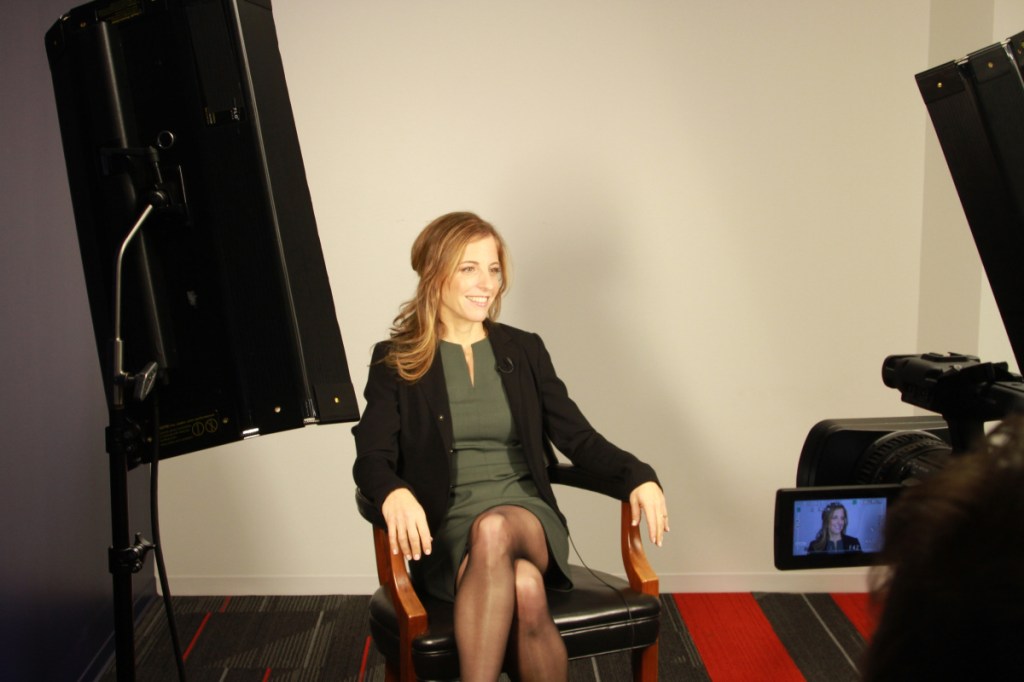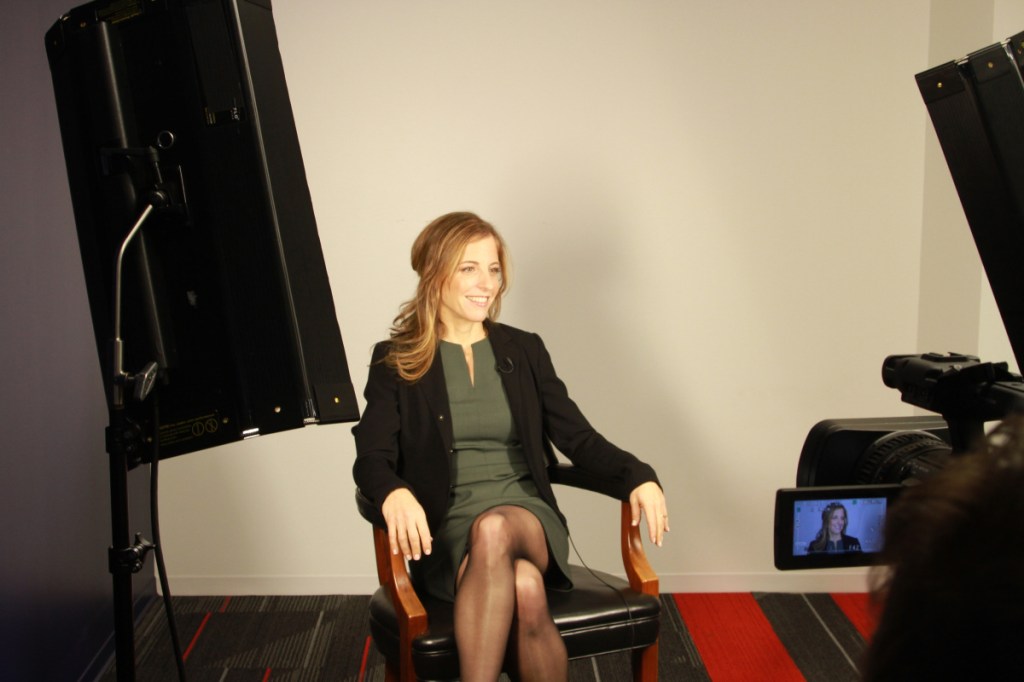WASHINGTON — One of the country’s most prominent advocacy groups pushing to protect the boundaries between religion and government is getting its first new leader in a quarter-century.
Rachel Laser, a lawyer and longtime advocate on issues related to reproductive freedom, LGBT equality and racism, is the new executive director of Americans United for Separation of Church and State. She is the first woman and, as a Jew, the first non-Christian to lead the 71-year-old group.
Laser, 48, takes over the organization at a time when Americans are especially bitter and fragmented about religion’s role in public life. From President Trump’s travel ban on people from multiple Muslim-majority countries to a pending Supreme Court case over whether American businesses can legally refuse to serve same-sex couples on religious grounds, religion is colliding in new ways with other issues and rights.
And in an increasingly diverse America, there is little agreement on what is meant by “religion” and when the state is becoming too involved or not enough. Should the government protect health-care workers who don’t want to be involved in contraception or abortion on religious grounds – or the woman who seeks them, or both? Should the government direct public funding to public and religious schools equally? Should the government take special care to honor Christian holidays – because most Americans are Christian?
LOOKING FOR A LEADER
What those who picked Laser agree upon: They want a fighter, and think they’ve found one.
“In my lifetime, I don’t think I’ve experienced such an overall assault on the freedom of religion and conscience as I have since the election of Donald Trump,” said the Rev. Neal Jones, a Unitarian Universalist pastor who leads Americans United’s board. “It seems the ploy by the religious right these days is to use freedom of religion – in quotes – as an excuse to violate people’s civil rights. We were looking for a leader who is up to the fight, understands the issues and has a real fire in the belly to carry on the banner of separation.”
While Americans have never been in harmony about the place of religion in public life, the basic concept of the separation of church and state – and what that constituted – was a more bipartisan, uncontroversial idea until recent decades. The country was less diverse and Americans had yet to push hard for the rights of the nonreligious and religious minorities. Diversity even within Christianity was less pronounced. “Separation” to many meant protecting the church from state intrusion.
Even as America is becoming by some measures less “religious” – and certainly less religious in an orthodox or conservative sense – there isn’t yet a solid middle ground on how to juggle so many competing forces.
Data show the lack of consensus. The Pew Research Center found in January 2016 that 27 percent of Americans said political leaders were talking too much about religion, while 40 percent said they were talking too little. At the same point in the 2012 presidential race, Americans leaned in the other direction – 38 percent said there was too much religious talk while 30 percent said too little.
But polling by the firm PRRI suggests Americans oppose protecting religious rights when it means discriminating. The margin varies based on the issue.
Asked in 2017 if small businesses should be allowed to refuse serving gay or lesbian people if it violates their religious beliefs, just 32 percent were in favor (13 percent “strongly” and 19 percent simply “favor”) while 63 were opposed (34 percent “strongly”), according to PRRI. Most Americans said faith-based adoption agencies should be barred from refusing to place children with same-gender couples, although the gap was much wider if the agency received federal funding (68 percent said agencies should not be able to refuse if the agency gets government funds; 51 percent if the agencies get no public money).
BUILDING BRIDGES
Laser also has experience building bridges. For five years the University of Chicago Law School graduate worked for Third Way, a progressive think tank aimed at finding common ground with evangelical Christians in particular on issues such as reproductive health, gay equality and torture. She worked with Trump adviser Sam Rodriguez and Florida megachurch pastor Joel Hunter – who pastored President Obama – on a measure that supported both contraception access and sexual health education – sometimes seen as more liberal causes – as well as help for pregnant mothers and new parents – sometimes seen as causes of abortion opponents.
The measure was never voted on, Laser said, and divisions over the Affordable Care Act “blew up the moment of common ground” but the relationships endure, she says.
In fact, Laser says a key challenge of this moment is to capture the energy and anger many Americans have felt since Trump’s election while simultaneously reintroducing church-state separation as a nonpartisan one.
“We need to awake that awareness, we need to awaken the notion that religious liberty undergirds the separation of church and state. The two can not only coexist but are tied at the waist,” she said in an interview.
The “church-state separation” movement badly needs a branding overhaul, says Jacques Berlinerblau, a professor at Georgetown University who has written several books on secularism and religion in politics. Berlinerblau says the movement has often been too male, too atheist and too fringe – focused on things unpopular with most Americans like ending the tax exemptions for houses of worship. Many of the exploding church-state issues people are worried about today have women at the center, he said, like contraception, abortion and women’s rights in the workplace.
‘WINNING BIG’
However, he said, secular advocacy groups haven’t been nearly as effective as religious conservative ones in recent years.
“This should be a great time for secular activism,” he said, but when it comes to the issue of church-state separation “where is the mobilized coherent social action? It hasn’t been there.”
Laser grew up in Chicago as the daughter of activist parents. She quickly went into public work, especially around reproductive freedom. She and her husband, intellectual property attorney Mark Davies, have three children. She worked for the National Women’s Law Center, heading what was called the Pharmacy Refusal Project – pushing back against the idea that pharmacists could refuse to fill certain prescriptions on religious grounds. She worked for five years at Third Way before becoming deputy director of advocacy for Reform Judaism – the largest denomination in U.S. Jewish life.
In the last couple of years, Laser has worked on curriculum and consulting related to racism and white privilege. She hopes among the groups she can inspire to be more active protecting separation are African Americans.
Her goal: Rebrand the fight for the separation of religion and government, “so we can win big like we did with marriage equality.”
What would “winning big” mean on this complex issue?
Laser pauses. “It means freedom of religion will be about a diverse, vibrant country, and not a monolithic, culturally favored religion in this country.”
Copy the Story LinkSend questions/comments to the editors.




Success. Please wait for the page to reload. If the page does not reload within 5 seconds, please refresh the page.
Enter your email and password to access comments.
Hi, to comment on stories you must . This profile is in addition to your subscription and website login.
Already have a commenting profile? .
Invalid username/password.
Please check your email to confirm and complete your registration.
Only subscribers are eligible to post comments. Please subscribe or login first for digital access. Here’s why.
Use the form below to reset your password. When you've submitted your account email, we will send an email with a reset code.